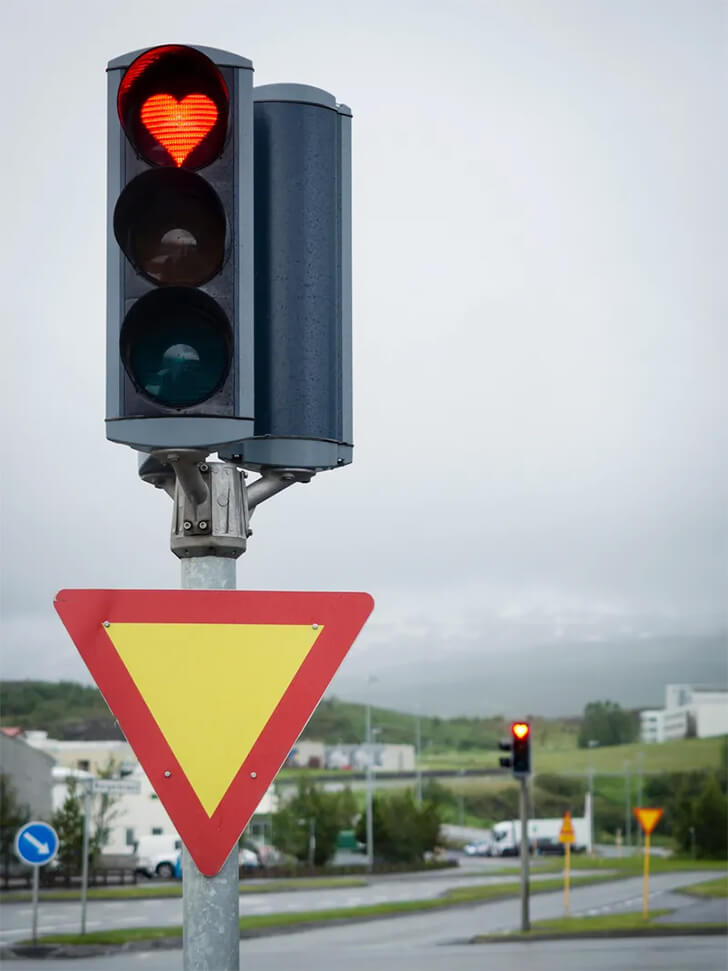Iceland Unveiled: 30 Mind-Blowing Facts That Will Make You Want to Pack Your Bags and Go!
Feel Loved Through These Traffic Lights

In 2008, Iceland suffered an economic crash that left its citizens devastated. To lift everyone’s spirits, the northern town of Akureyri added heart-shaped fixtures to their traffic lights, reminding people to stay positive. Former mayor Eiríkur Björn Björgvinsson believes this small act of kindness made a big difference.
Akureyri is the second-largest urban area outside Reykjavík, located just 100 kilometers from the Arctic Circle. With a population of around 19,642 as of 2022, Akureyri is home to several must-visit locations, including the Botanical Garden. The garden features almost every plant that grows in Iceland, along with several species from other nations, including Greenland.

You must be logged in to post a comment Login